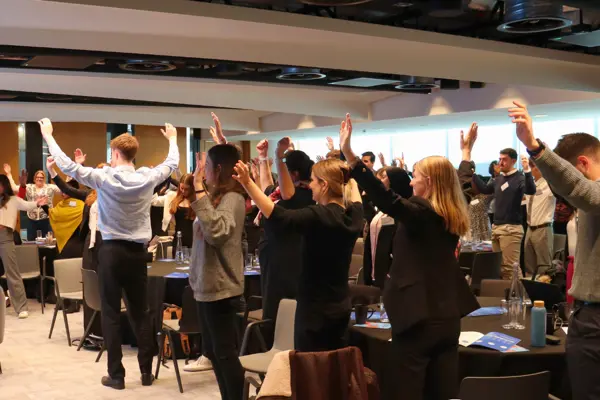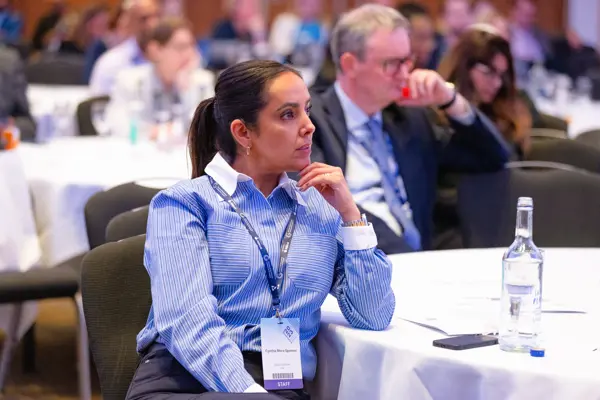What is CPD?
Continuing professional development (CPD) is crucial to maintain, enhance and improve your knowledge, skills and abilities. Not only does building CPD hours help you stay up to date with current business requirements, it also demonstrates your versatility and growth.
Through your CPD, current or potential employers can see that you’re a professional committed to your own development – and can help you shape your own thinking about where you want your career to lead, too.




CPD requirements for CGIUKI members
- All CGIUKI chartered members are required to complete at least 20 CPD hours, five hours of which must be formal CPD. Members in public practice are required to carry out and record 35 hours of CPD, 10 hours of which must be formal CPD.
- Chartered members must complete their CPD within the current membership year (1 August - 31 July). All CPD declarations must be made no later than 31 July each year.
- Members in public practice must complete their CPD within 12 months of the date stated on their practicing certificate.
- New chartered members are not required to complete mandatory CPD until the next full year of membership.
- Student and graduate members aren’t obliged to meet CPD requirements, but we recommend logging your CPD activity as a good habit to get into.
Use the competency framework
The Competency Framework for Governance Professionals is a useful tool to identify gaps in your knowledge and skills and what to focus on as part of your CPD.
Comprising 12 core competencies divided into three areas (Understanding, Practice and Values), you’ll find a collection of the key attributes — or core competencies — that make a good governance professional.
CPD Opportunities
Formal vs Informal CPD
Formal CPD is something you attend or actively participate in, like a formally arranged event, and generally has an agenda – things like attending a conference, doing a training course or writing a published article.
Other examples of formal CPD activities include:
- Participation in staff development training courses/activities provided by employers
- Sharing professional knowledge in a formal setting
- Lecturing, teaching and addressing meetings on relevant subject matter
- Being an examiner or being involved in professional or higher education that is relevant.
Informal CPD is usually done on your own, or with just a few colleagues – things like reading G+C magazine, being a mentor, or attending a webinar.
- Reading, researching information via the internet, reviewing books or articles for professional purposes
- Experiential/workplace learning, reading and research
- Reading a book or publication from The Chartered Governance Institute
- Reading other professional body magazines or business journals
- Professional research projects undertaken in the course of work
- Coaching, mentoring, peer review, work shadowing/secondments, meetings or project work
- Participation as a Community Champion or Subject Expert with the Institute
Logging and evidencing your CPD
Log and evidence your CPD hours using the CPD log in MyCG, our online portal. You will be automatically taken to the declaration page once you have logged the total required hours. Your log must be kept for a period of three years.
If you’re using an alternative CPD log, you’ll still need to declare your CPD on MyCG.
We choose members at random to check their CPD activity every year, so providing evidence of your CPD activity is important. CPD can be evidenced by providing things like attendance lists, confirmation emails, copies of teaching materials, or agendas.
Your evidence must be kept for a period of three years. You can upload evidence using the CPD log in MyCG.
We choose members at random to check their CPD activity every year, so providing evidence of your CPD activity is important. CPD can be evidenced by providing things like attendance lists, confirmation emails, copies of teaching materials, or agendas.
Your evidence must be kept for a period of three years. You can upload evidence using the CPD log in MyCG.
Example CPD activities and acceptable evidence
Area |
Example evidence |
Courses, seminars and workshops |
Certificate/notice of attendanceAttendee listCopy of the teaching materialCopy of any completed course assignmentsConfirmation by an employer of participation. |
In-house staff development activities |
Certificate/notice of attendanceAttendee listCopy of the teaching materialCopy of any completed course assignmentsConfirmation by HR department or director of participation. |
Conferences, events, displays, updates |
Attendee listEvent programmeConfirmation letter or emailCopy of invitation to participateCopy of speech. |
Specialist panels and group meetings |
AgendaAttendee listCopy of any documents distributed at the meetingCopy of the minutesCopy of invitation to participateCopy of speech lecturing, teaching and addressing meetingsCopy of any signed formal agreementsCopy of letter/e-mail authorising activityCopy of timetable Copy of speech |
Writing relevant books, articles, papers or documents |
Copy of any signed formal agreementsCopy of letter/e-mail requesting/authorising the writing of the pieceCopy of the document – dated and signed by yourself and a witness |
Relevant work-based meetings or events |
AgendaAttendee listCopy of any documents distributed at the meetingCopy of the minutesCopy of invitation to participateCopy of speechCopy of induction materials for new staffConfirmation by HR department or director of your participation/attendance |
Being an examiner or involvement in professional or higher education |
Copy of any signed formal agreementsCopy of letter/e-mail authorising activity |
Reading |
Use self evidence sheet and confirm:
|
Reviewing books articles |
Copy of any signed formal agreementsCopy of letter/e-mail authorising activityConfirmation by HR department or director of your participation/attendanceUse self evidence sheet and confirm:
|
Researching information |
Copy of the research proposalAny written instructions/requests receivedCopy of any funding applicationsCopy of any documentation distributed as part of the research – i.e. consultation documentConfirmation by HR department or director of your participation/attendance |
Project work |
Copy of the project proposalWritten detail of the research requiredCopy of the project reportConfirmation by HR department or director of your participation |
Coaching, mentoring |
Copy of any signed agreementsCopy of letter/e-mail authorising/requesting/agreeing to activityCopy of timetable |
Peer review, work shadowing, secondments |
Copy of any signed agreementsCopy of letter/e-mail authorising/requesting/agreeing-to activity |
CPD exemptions
CGIUKI members who are retired, unemployed, working part-time or on parental leave for more than eight months could be exempt from CPD requirements.
If you think that your circumstances might make you eligible for CPD exemptions, please contact us.
